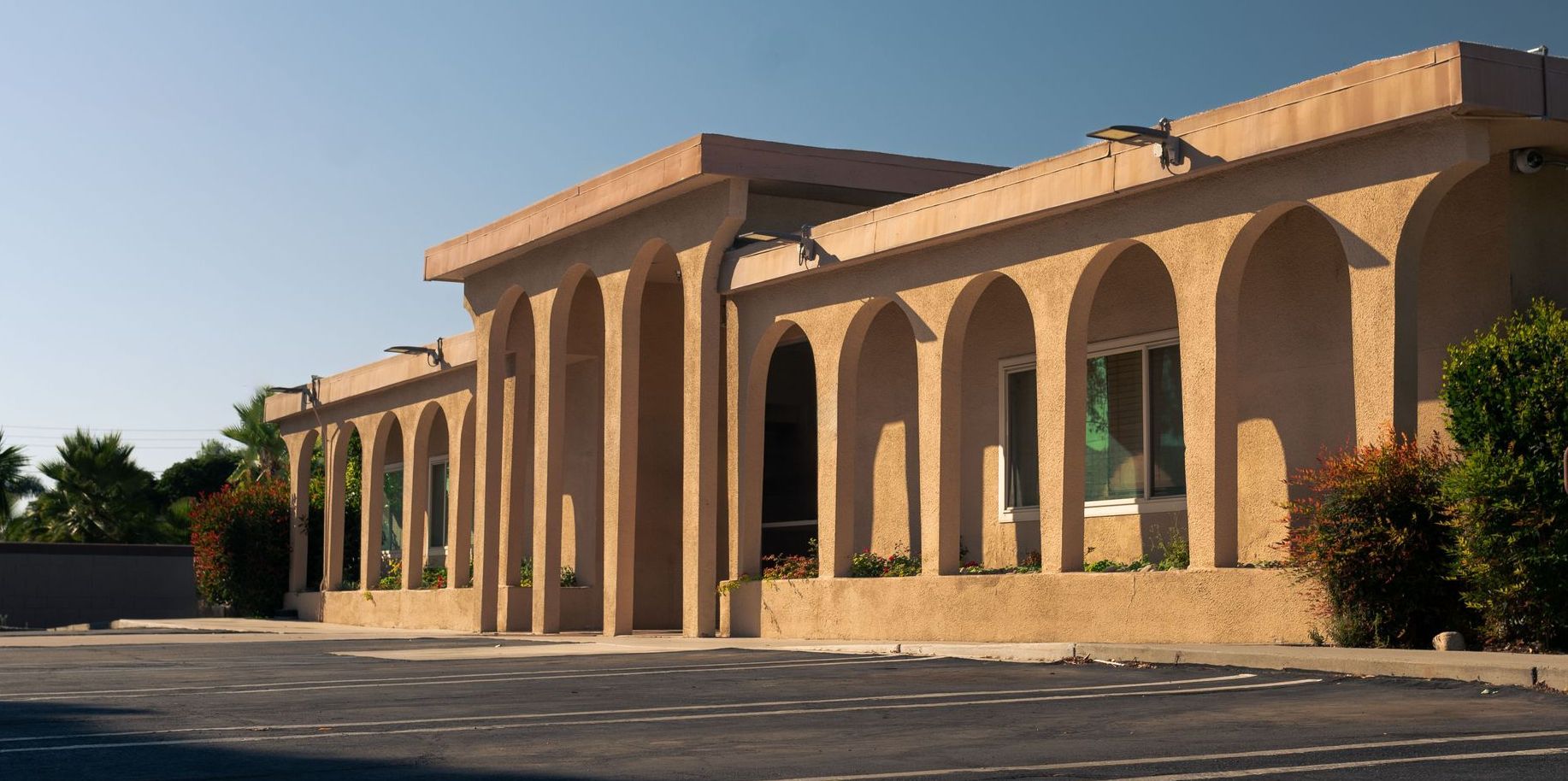A Change to Cherish

“I cherished the program. Cedar House to me is sacred ground because it’s where I first learned the 12 Steps and the Serenity Prayer.”
Jerry struggled through years of challenges with addiction, crime, homelessness, relapses and custody battles. Once he came to Cedar House directly from prison for the first time in 2011, the initial foundation was laid for a lifetime in recovery.
At the age of 15, Jerry began hanging around of group of guys who used him to buy their beer. He was a quiet kid who happened to look older than he was, so they invited him to party with them. They convinced him to drink beer and try smoking weed. Although it made him sick, he still recalled the “overwhelming feeling” of being high for the first time and starting to get hooked. He said, “It was a classic, textbook case. It had a snowball effect. Marijuana really is a gateway drug. After that, I got into cocaine, which led to the criminal system.”
Every time Jerry got into trouble with the law, it was directly related to his drive to pay for more drugs and alcohol. He said, “To sum it up, I was a tore-up drug addict.”
By the time he turned 40, he had been in and out of the prison system for most of his life. The court system allowed him to move into a program called His House where he got accustomed to rising at 5:30 a.m. and having his morning coffee over prayers and self-help books with fellow clients. He was technically still in custody but starting to desire a real change in his life.
The Department of Corrections moved him to Cedar House for residential treatment. After 25 years, he was finally sober. He and four of his new friends kept up their early morning routine there. They learned more and more about recovery and started to understand how they could change their lives. The more he learned, the more he wanted to know more. He had so many questions! He would catch staff in the hallway and ask for their guidance to deepen his understanding of the recovery process.
After five and a half months of sobriety, Jerry relapsed. His mom had a stroke and became hospitalized. His case manager took him to the hospital to see her and reviewed the 12 steps on the way there. A few days later, he went with his cousin and stayed overnight. Since he was still in court custody during that time, he wasn’t allowed to return to Cedar House. He stayed by her side for another week, but the stress led to drinking, and the snowball effect began again.
Jerry moved from smoking crack to meth and even both at the same time on occasion, which caused dangerous behaviors and hallucinations. When he was arrested four years later in 2015, he asked to return to Cedar House. He said, “They had really impressed me. They got me sober. I knew the info they gave me was real. It was life changing.”
During his experience with mental health court in sober living, he had some time to think. He was 49 years old and knew he would lose everything if he didn’t commit to his recovery. He visited his counselors at court and perked up when they said his first 90 days would be at Cedar House.
In the Cedar House lobby as he awaited his turn for intake, Jerry noticed another client looking at him. This man ended up being his roommate. At night, Jerry would try to leave the door ajar to read the Big Book by that sliver of light, but his roommate would yell at him to shut the door so they could all sleep. Jerry said, “The Big Book became my bible. I went to groups, worked out, read the Big Book, and asked questions.”
He didn’t want to fight with his roommate, so Jerry would bring his book into the bathroom to read at night. This routine of reading and focusing on the program laid a solid foundation for Jerry. That roommate became his sponsor, and they have stayed close every since. After 90 days, Jerry moved into sober living. He attended Sunday night meetings and panels until 2018.
That’s when Jerry’s mother passed away. He had regained custody of his children, but after relapsing, they were taken back into the system. He said, “I was crumbling. By the grace of God, I realized I was going to lose everything. I realized if I keep drinking and using, my kids will stay in the system.”
He said, “I had to take a deep breath and deal with the disappointment of relapse.”
On Dec. 29, 2019, Jerry committed himself once again to his recovery. He reflected back on the staff at Cedar House and said, “I remember everything they said. I would call and talk to Mike (his case manager). Every time he told me something, it rang true or eventually it would come true.”
Jerry is proud of everything he learned at Cedar House and the fact that he’s been able to mend his relationships with his family. With the help up Step Up, Jerry and his son are in stable housing. Now, he has four years of sobriety and earned his certified peer support license to help others on their path to recovery.


When someone is seeking help for drug or alcohol addiction, one of the most important questions to ask is: Is this treatment evidence-based? The answer can make a meaningful difference in recovery outcomes, safety, and long-term stability. At Cedar House Life Change Center, evidence-based treatment is the foundation of everything we do. Our programs are designed using approaches that are backed by research, clinical best practices, and decades of real-world experience serving individuals and families in the Inland Empire. What Does “Evidence-Based Treatment” Mean? Evidence-based treatment refers to therapies and clinical practices that have been scientifically studied and proven effective in treating substance use disorders and co-occurring mental health conditions. These approaches are recommended by national health authorities and continuously evaluated to ensure they improve outcomes. Unlike untested or purely anecdotal methods, evidence-based care relies on: Clinical research Outcome data Professional standards of care Ongoing evaluation and improvement In addiction treatment, this matters because recovery is complex, personal, and deeply impacted by mental health, trauma, and social factors. Why Evidence-Based Treatment Matters in Recovery Addiction affects both the brain and behavior. Effective treatment must address more than substance use alone. Evidence-based treatment: Improves engagement and retention in care Reduces relapse risk Supports mental health and emotional regulation Helps individuals build practical coping skills Increases long-term recovery success For families and referral partners, evidence-based care also provides confidence that treatment decisions are grounded in proven methods—not trends or shortcuts. Evidence-Based Treatment at Cedar House Cedar House has served adults seeking recovery for decades, and our treatment model continues to evolve based on best practices and community need. Structured, Research-Supported Curricula Cedar House utilizes well-established, evidence-based curricula, including: The Matrix Model, a structured approach shown to be effective in treating substance use disorders Living in Balance, a nationally recognized curriculum that addresses substance use, mental health, relapse prevention, and life skills These frameworks provide consistency while allowing flexibility for individual needs. Integrated, Whole-Person Care Evidence-based treatment recognizes that recovery is not one-size-fits-all. At Cedar House, clients participate in therapeutic groups and services that address: Substance use patterns Co-occurring mental health conditions Trauma and stress Family relationships Emotional regulation and coping skills This integrated approach supports both short-term stabilization and long-term recovery. Medication-Assisted Treatment (MAT) When clinically appropriate, Cedar House incorporates Medication-Assisted Treatment (MAT) as part of an evidence-based recovery plan. MAT is widely recognized as an effective tool for reducing cravings, supporting stabilization, and improving treatment retention, especially when combined with counseling and behavioral therapies. Individualized Services While evidence-based models provide the framework, treatment at Cedar House is always individualized. Clinical teams work with each client to develop a plan that reflects their history, goals, strengths, and challenges. T his balance between structure and personalization is a hallmark of effective evidence-based care. Why Evidence-Based Care Matters for Families and Referral Partners Choosing a treatment program is a significant decision. Evidence-based treatment offers reassurance that: Care is aligned with clinical standards Services are ethically and professionally delivered Treatment approaches are supported by research and outcomes Recovery planning is intentional and goal-oriented For referral partners, evidence-based programs help ensure continuity of care and better outcomes for the individuals they serve. A Commitment to Quality and Accountability At Cedar House, evidence-based treatment is not a buzzword. It’s a commitment. Programs are continually reviewed, staff are trained in best practices, and services are delivered with compassion, accountability, and respect for each individual’s recovery journey. Getting Help That’s Grounded in What Works If you or a loved one is exploring treatment options, understanding whether a program uses evidence-based approaches is an important first step. At Cedar House, treatment is grounded in what works because recovery deserves care that is informed, intentional, and proven. To learn more about Cedar House programs or to access services using private health insurance, explore the website or call 909-421-7120 today.

The holiday season can be joyful but also challenging. For many people, the holidays are a time of togetherness and celebration. But for those in recovery from substance use, this season can bring a mix of emotions -- joy and gratitude, but also stress, temptation, and pressure. Family gatherings, social events, and memories of past holidays can test even the strongest commitment to sobriety. At Cedar House Life Change Center, we understand these challenges. Our mission is to help individuals and families build lasting recovery through treatment, education, and ongoing support. Here are a few practical ways to protect your sobriety and stay connected to hope this holiday season. 1. Plan Ahead for Triggers Before attending a party or event, think about what might challenge your recovery. Bring your own non-alcoholic drink, drive yourself so you can leave early if needed, and connect with your sponsor or peer network before you go. Preparation gives you confidence and control. 2. Stay Connected to Your Support System The holidays can feel isolating, especially if you’re making lifestyle changes. Reach out to supportive friends, family members, or recovery peers who understand your journey. Schedule a check-in or attend a support group before and after big events. Staying connected helps you stay grounded. 3. Prioritize Self-Care Take care of yourself, physically, emotionally, and spiritually. Maintain regular sleep, eat balanced meals, get outside, and make time for reflection or prayer. A calm and nourished mind is your strongest ally in maintaining sobriety. 4. Set Boundaries and Say “No” Without Guilt You don’t have to attend every event or explain your choices. Declining an invitation or leaving early doesn’t make you antisocial. It makes you strong. Your recovery is your priority, and real friends and loved ones will respect that. 5. Keep Recovery at the Center of the Season Stay consistent with meetings, counseling, or alumni groups. Cedar House offers aftercare support, relapse prevention programs, and peer connections that help clients stay engaged long after treatment. Recovery doesn’t stop after discharge. It’s a lifelong process of growth and renewal. You Don’t Have to Do This Alone If you or someone you love is struggling this holiday season, Cedar House Life Change Center is here to help. Our compassionate team provides evidence-based treatment, medical support, and recovery programs designed to meet each person’s unique needs. Reach out today to learn how we can help you or your loved one find peace, purpose, and sobriety this holiday season and beyond.


Share On: